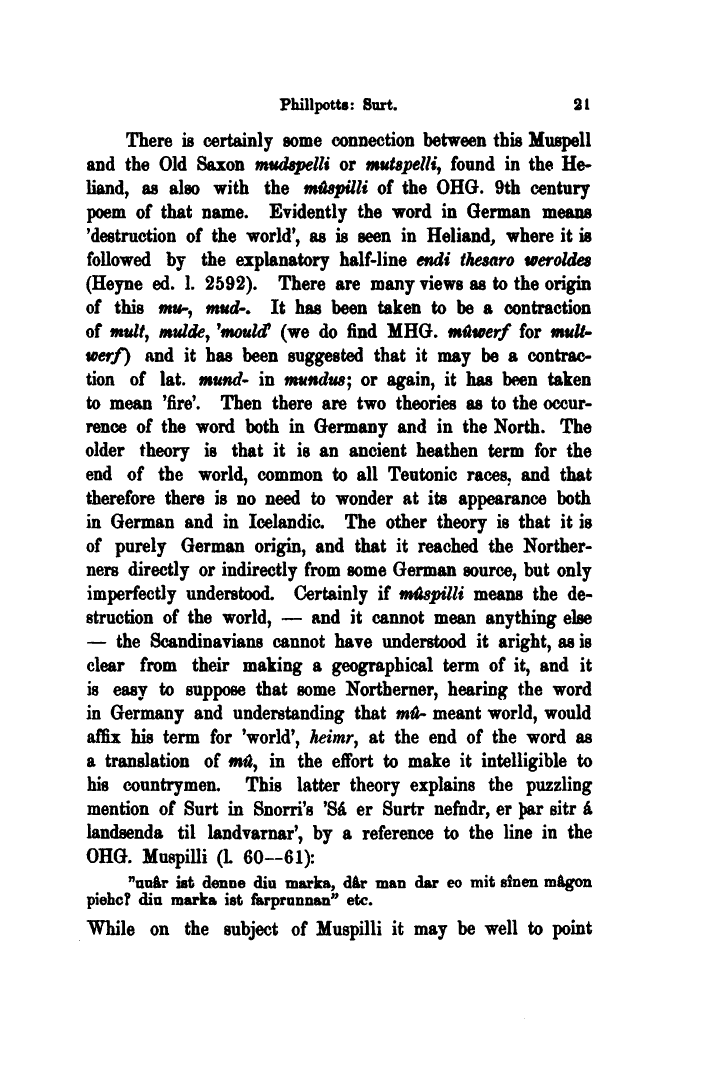
Full resolution (TIFF) - On this page / på denna sida - Sidor ...

<< prev. page << föreg. sida << >> nästa sida >> next page >>
Below is the raw OCR text
from the above scanned image.
Do you see an error? Proofread the page now!
Här nedan syns maskintolkade texten från faksimilbilden ovan.
Ser du något fel? Korrekturläs sidan nu!
This page has never been proofread. / Denna sida har aldrig korrekturlästs.
Phillpotts: Sturt.
21
There is certainly some connection between this Muspell
and the Old Saxon mudspeUi or mutspeUi, found in the
He-liand, as also with the múspilli of the OHG. 9th Century
poem of that name. Evidently the vord in German means
’destruction of the world’, as is seen in Heliand, where it is
followed by the explanatory half-line endt thesaro weroldes
(Heyne ed. 1. 2592). There are many views as to the origin
of this mur1 mud-. It has been taken to be a contraction
of mult, mulde, ’moulcC (we do find MHG. múwerf for
mult-werf) and it has been suggested that it may be a
contraction of lat. mund- in mundus; or again, it has been taken
to mean ’fire’. Then there are two theories as to the
occur-rence of the word both in Germany and in the North. The
older theory is that it is an ancient heathen term for the
end of the world, common to all Teutonic races, and that
therefore there is no need to wonder at its appearance both
in German and in Icelandic. The other theory is that it is
of purely German origin, and that it reached the
Norther-ners directly or indirectly from some German source, but only
imperfectly underBtood. Certainly if m&spilli means the
destruction of the world, — and it cannot mean anything else
— the Scandinavians cannot have understood it aright, as is
clear from their making a geographica! term of it, and it
is easy to suppose that some Northerner, hearing the word
in Germany and understanding that mú- meant world, would
affix his term for ’world’, heimr, at the end of the word as
a translation of mÄ, in the effort to make it intelligible to
his countrymen. This latter theory explains the puzzling
mention of Surt in Snorri’s ’Sá er Surtr nefhdr, er þar sitr á
landsenda til landvarnar’, by a reference to the line in the
OHG. Muspilli (L 60—61):
"uuår ist denne diu marka, d&r man dar eo mit einen mftgon
piehcf diu marka ist farprunnan" etc.
While on the subject of Muspilli it may be well to point
<< prev. page << föreg. sida << >> nästa sida >> next page >>